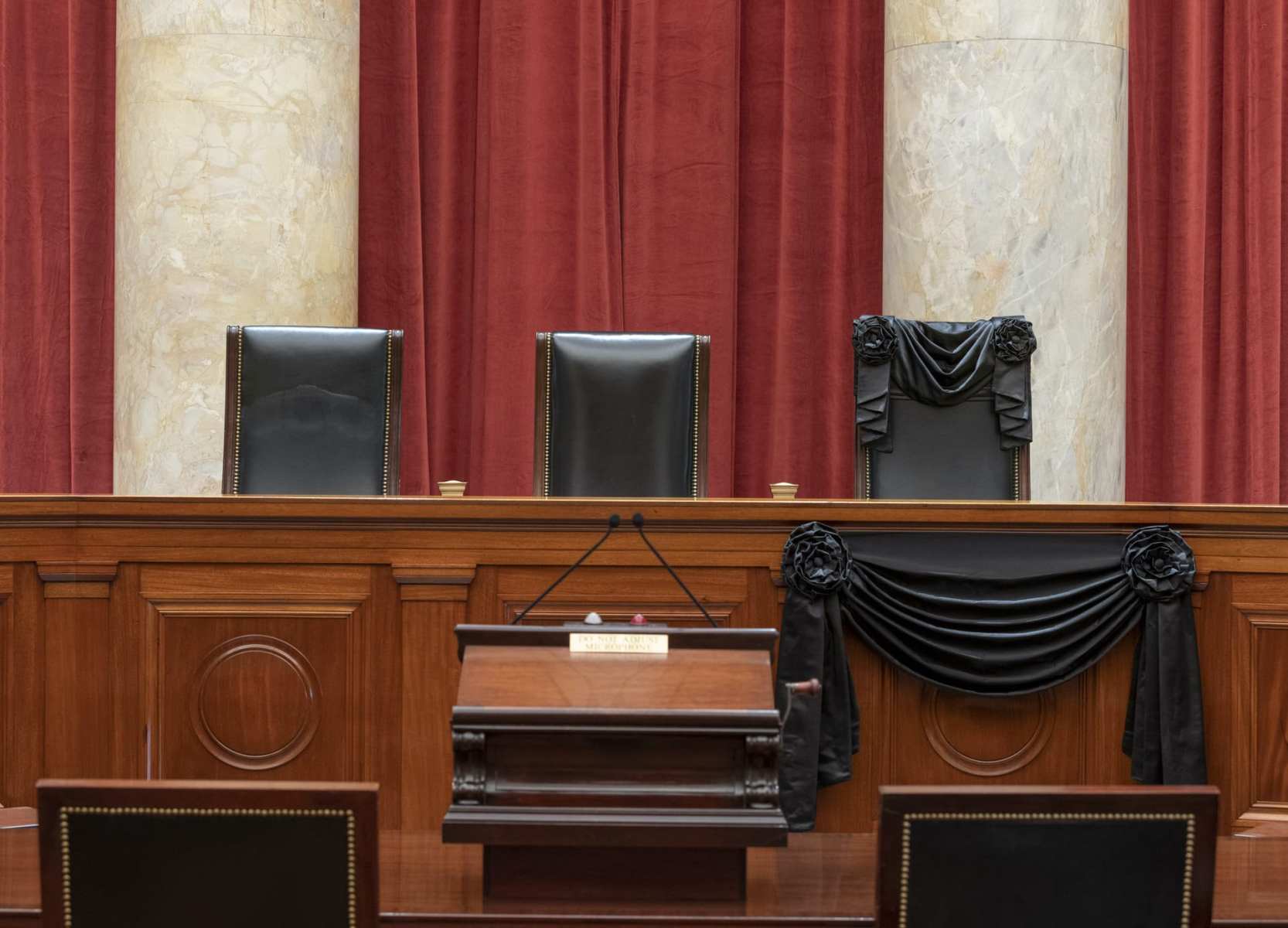The pick to fill Ruth Bader Ginsburg’s Supreme Court seat could have dramatic implications for cis women and trans people’s access to health care.
President Donald Trump, who plans to announce a nominee by Saturday, has said he hopes for a confirmation before the November 3 election. And a new justice would play a pivotal role in determining the fate of the Affordable Care Act, which is slated to once again appear before the court only days after the election. This person would also weigh in on numerous pending abortion lawsuits that have the potential to severely undercut or eliminate abortion rights.
Legal experts and advocates across the spectrum agree that a third Trump justice would weaken the ACA’s chances of surviving California v. Texas. In that case, a group of Republican attorneys general have argued that a 2017 tax law invalidated the entire ACA when it set the “individual mandate” — a penalty people had to pay if they didn’t have insurance — to zero.
Even if the case is heard and decided before a justice is confirmed, with only an eight-member court, finding five votes to uphold the law will be substantially more difficult without Ginsburg. A 4-4 ruling would let a lower court ruling stand, allowing for the entire health law to be eliminated. Chief Justice John Roberts could also decide to delay the case until a new justice is confirmed.
“Ruth Bader Ginsburg’s death means that the Affordable Care Act now hangs in the balance,” said Wendy Netter Epstein, a health law professor at DePaul University. “Given Trump’s very staunch opposition to the ACA, and with California v. Texas pending this term, it seems highly likely that Trump would only nominate a candidate who he believes would support the administration’s position that the ACA should be struck down.”
Without the ACA, cis women and trans people could have more expensive health insurance — prior to the health law’s passage, insurance plans could charge higher premiums based on someone’s gender, and charged more based on people’s medical history. Women in general were more likely to have pre-existing conditions, and being transgender was often considered a pre-existing condition.
The health law is also the reason health insurance plans must cover pregnancy-related medical services, contraception without cost-sharing, mental health care and prescription drugs. (Cis women and trans people have higher rates of anxiety and depression, and are more likely to forego medication because of cost barriers.) And it was the first law to establish protections against sex and gender discrimination in health care, protections the Trump administration has already attempted to walk back.
“A lot of folks think of the ACA as a health insurance law, but I do think of this law as a civil rights law in many ways,” said Katie Keith, a Georgetown University law professor and health policy expert. “It’s been hugely revolutionary.”
Beyond the ACA, a confirmed Trump justice further increases the odds that any of the pending abortion-related court cases — largely challenges over various state-based restrictions on access — could result in a high court ruling that revises or reverses Roe v. Wade, the 1973 case that guaranteed the right to an abortion.
If that precedent is eliminated, 21 states have laws on the books that could be used to restrict or eliminate abortion access, according to the Guttmacher Institute, a research group that supports abortion rights but whose work is cited across the spectrum. Another 13 states, plus the District of Columbia, have laws that would maintain abortion protections.
Trump’s previous Supreme Court picks, Neil Gorsuch and Brett Kavanaugh, both voted in favor of abortion restrictions in this summer’s June Medical Services v. Russo, a court case challenging Louisiana’s requirement that physicians performing abortions have admitting privileges at local hospitals. (Such standards have been shown to result in more clinics that provide abortions ultimately closing their doors, but research suggests they don’t benefit the patient’s health in any meaningful way.)
Throughout his re-election campaign, the president has promised to fill any new Supreme Court vacancies with justices who oppose abortion rights, as well as Roe v. Wade. His current shortlist, which was released earlier in September, was unambiguously praised by the Susan B. Anthony List, an anti-abortion group.
A reversal of Roe v. Wade is “a deep concern now,” said Michele Goodwin, a law professor at the University of California, Irvine and expert in health and constitutional law. “This president has articulated he wants a certain kind of ideology associated with the judges. It’s that piece which makes this challenging.”
Trump said Monday he has limited his list of picks to five women, including frontrunner Amy Coney Barrett, a judge on the Court of Appeals for the Seventh Circuit; Barbara Lagoa, who serves on the Eleventh Circuit in Florida; and Allison Jones Rushing, a Fourth Circuit judge.
Barrett has in multiple instances been part of opinions that would restrict abortion access. Marjorie Dannenfelser, SBA List’s president, said that on abortion, Barrett is a “woman who brings the argument to the court that is potentially the contrary to the views of the sitting women justices.”
Barrett also has argued in favor of the dissenting argument, in King v. Burwell, a Supreme Court case that upheld the ACA. And her writing has suggested “an openness to the idea” that NFIB v. Sebelius, the law’s first high court challenge that upheld the law, “was wrongly decided,” Keith said.
Lagoa hasn’t publicly weighed in on abortion, but Florida Rep. Matt Gaetz, one of her main backers, called her “reliably pro-life.” Her ACA views are less clear, but she, Barrett and Rushing are all “likely to vote with the other conservative justices on the court,” Netter said.
Rushing’s judicial record is short, But her legal experience includes the Alliance Defending Freedom, a conservative Christian organization known for its opposition to LGBTQ+ rights and abortion.
Those histories could be tremendously significant, Goodwin said.
“What’s at stake are fundamental questions of people’s health,” she said.






